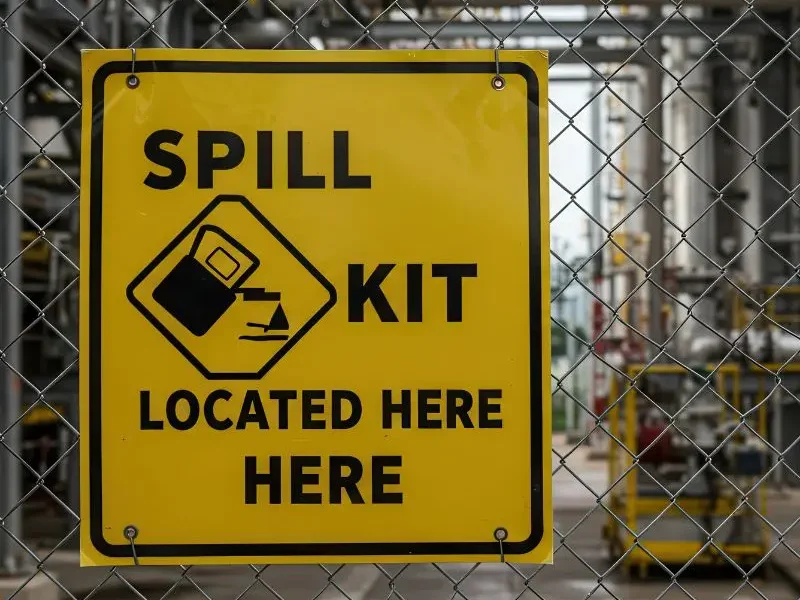Learn everything you need to know about spill kits – how to choose, use, and maintain them to effectively manage spills and protect your workplace and the environment.
If you have any kind of pollution risk on your site, you should have spill kits in place. But do you know what you’re looking for when you’re ordering and checking spill kits? Do you know what is most suitable for your operations? This week’s blog will discuss spill kits and what you should be thinking about.
Do I need a spill kit?
The first thing to consider is whether you need a spill kit. The most likely answer to this is yes. If you store or have any liquids on your site, you should have a spill kit. This includes not only large diesel tanks and chemical containers but also the oil and fuel in the cars in your car park. If there was to be a leak or an incident, could you deal with it? Could you stop hazardous liquids from getting into the drainage system? A spill kit is designed to contain and clean up spillages and limit environmental damage.
What kind of spill kit do I need?
There are two main types of spill kit: oil specific and chemical specific, so it depends on the liquids you are storing on site. You may need to get more than one type of kit to deal with all the hazards on your particular site. Don’t be fooled by some oil spill kits being labelled ‘suitable for mild chemicals’, if you have chemicals on site, you should get a kit specific to those hazards. As well as a main spill kit, you may want to consider purchasing some drain covers to protect your drains. There are many different types and you’ll need to think about which option is best for you. You can get reusable covers, chemical resistant covers and mats that mould together to fit larger drains.
What else do I need to think about when ordering spill kits?
You will need to consider the size and number of spill kits when ordering. You want to make sure you have a spill kit that is capable of dealing with a spill under a worst case scenario. If your diesel tank was to spill its contents into your yard, would you have enough of a spill kit to, at the very least, contain the spillage?
You also need to think about how many spill kits you’ll need. You want spill kits at all areas of high risk. For example you will want spill kits next to the diesel tank, at the refuelling area and at chemical storage areas. With this in mind, you need to make sure you have enough spill kits, of the right type, of sufficient size at each point you have identified there is a risk of spillage.
I have my spill kits, what now?
Once you have your spill kits in place, you need to make sure your staff know where they are, what they are and how and when to use them. Spill response training is essential to make sure any spills are dealt with quickly and efficiently to minimise environmental damage. Staff also need to be aware of reporting procedures so controls can be put in place to prevent recurrence of the incident and to make sure spill kits are fully replenished after they’ve been used.
You should also add spill kit checks to your regular inspections and walk rounds. You should be making sure that spill kits are full, in good condition, in the correct place and easily identifiable and accessible in the event of a spillage. If any problems are identified, you should correct them as soon as possible, making sure spill kits are fully stocked and available at all times.
If you have any risk of pollution from your site, having the correct spill kits in place is essential to ensure you minimise environmental damage. When assessing your spill kit requirements, you need to think about what type you need, how big they need to be, how many are required, what training you need to make sure is in place and how you are going to make sure your spill kits are in good condition and fully stocked at all times. Have you assessed your spill kit requirements recently? Do you have enough on your site? Leave your comments in the box below.







